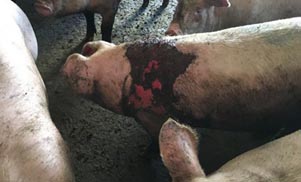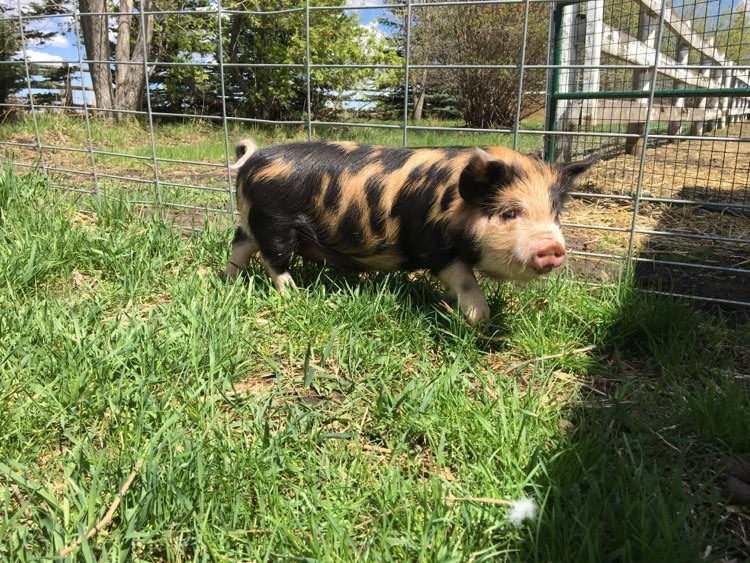When it comes time for slaughter using an abattoir usually is the easiest and most preferable method, as they are well-equipped to identify carcasses not safe for human consumption. However, if you slaughter and process at home, it is very important that you take precautions to ensure the health and safety of the individuals handling and consuming the final product.
Contamination During Processing
- Transmission can occur through contact with blood and tissue (Streptococcus suis and erysipelas)
- Transmission occurs through contact of an open wound with blood or tissue from an infected pig (e.g. knife cuts).
- Carcass contamination during processing (Salmonella, E. coli, and Campylobacter)
- Commonly occurs through manure contamination of the processing area, or cutting the intestines during processing, releasing manure onto the dressed carcass.
- Ensure you are wearing appropriate personal protective equipment (PPE) – gloves, masks, boots, goggles, and ear plugs to reduce contamination.

Contamination Prior To Processing
- Always wash your hands before and after handling pigs.
- The four most common parasites are pork tapeworms (Tenia solium), large roundworms (Ascaris suum), Trichinella, and Toxoplasma. Trichinella and toxoplasma can live in cysts in the meat and are infectious to humans if consumed.
- Feeding food waste or garbage (contaminated with meat or meat products) to pigs is a risk factor for Trichinella, this is one of the main reasons this practice is illegal in Canada.

How Can I Avoid Contamination?
- Remove dirty clothing and boots prior to entering your house.
- Wash your hands before and after handling your pigs.
- Use cut-proof gloves when slaughtering or processing.
- Properly clean and disinfect all equipment used for processing.
- Fully cook all pork products. Cooking pork to the recommended (end) internal temperature of 71°C (160°F) will ensure any internal parasites are killed during the cooking process.
- Wash your hands before and after handling raw meat.
- Avoid consuming raw or undercooked meat products.

